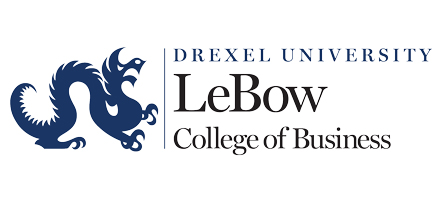Sorting out which U.S. B-school master’s programs are the best choices for a particular student can be difficult. No reliable rankings exist. U.S. News & World Report‘s rankings of specialty master’s programs are shallow and subjective, based only on survey responses from business school deans and directors of accredited master’s programs. The Financial Times rankings of finance and management master’s programs focus mainly on European schools. And lest you stumble upon the host of specialized-master’s rankings at “TFE Times” and think they must be heaven sent, note the website’s other content, such as “Saving Your Pet With CPR,” “What If You Made Alien Contact?” and “222 Powerful Actions (sic) Verbs to Use in Resume.” (That type of distracting content, however, did not deter the Michigan State Broad College of Business from hyping, on its website, its No. 7 ranking from TFE for its business analytics program. Indeed, the Syracuse University Whitman School had its master of finance program director in October publicly salute his program’s No. 33 TFE ranking, and the University of Rochester Simon School lists its four spots in the TFE ranking among its placements alongside its rankings in U.S. News, Bloomberg BusinessWeek, and the Financial Times.)
MASTER’S INTEREST NOT CONSISTENT ACROSS FIELDS
While Westerbeck of Eduvantis says his firm’s research shows a general upward trend in interest in specialized master’s programs, Eduvantis analyzed Google search data and found that some subject areas were drawing more interest than others. Business analytics saw a 50% increase this year over last, while searches related to programs in accounting and real estate were up 23%. Search volumes for supply chain management were down 33%, and entrepreneurship was down 28%, with flat interest in finance and marketing, Westerbeck says, adding that the search data is “highly predictive” of prospective-student demand.
Also contributing to the popularity of many programs is millennial graduate students’ tendency to seek relatively short programs with a narrow focus and rigorous discipline, combined with the students’ preference to pursue general-management education through other means, such as open courses at top schools, or later via an MBA, Westerbeck says.
It’s impossible to say how many specialized master’s programs are floated and fail quickly, or hang on for a few years before succumbing, because schools generally don’t report failed programs. (Hult International Business School’s eulogy for a fallen social entrepreneurship master’s program stands out as somewhat of an oddity. The promotional material for the program, which started in 2011 but is being shut down in August 2016, has been translated into the past tense: “This Master degree program was designed for recent graduates who wanted to launch a career in social entrepreneurship,” Hult’s website says. “(It) helped students understand and develop core business skills while learning how to successfully engage in issue advocacy, problem-solving through innovation, and project development and management. Hult is a thought leader in social entrepreneurship and our curriculum was at the cutting-edge of this exciting space.”)
EVERY JOB MARKET IS DIFFERENT
As schools can err in assuming a national upswing in interest in a particular field would mean a program in their market in that field would likely succeed, students can err in thinking that nationwide demand for graduates in a particular field applies to employers everywhere, Westerbeck cautions. Prospective students must research the job market or markets where they intend to work, and determine whether job opportunities in their preferred fields and disciplines exist there, and whether the school is placing students in such positions there, Westerbeck says.
The other key consideration for those considering specialized master’s programs – and wanting to get a job as a result – is school brand, and the brand’s value in the job market, Westerbeck says. “What’s the power of the brand you’re buying, versus an institutional brand that isn’t as well recognized?” Westerbeck says. “The point is finding the best possible combination of brand, of focus, of program, that aligns with your particular interest, in the market in which you seek to be employed with this degree.”





